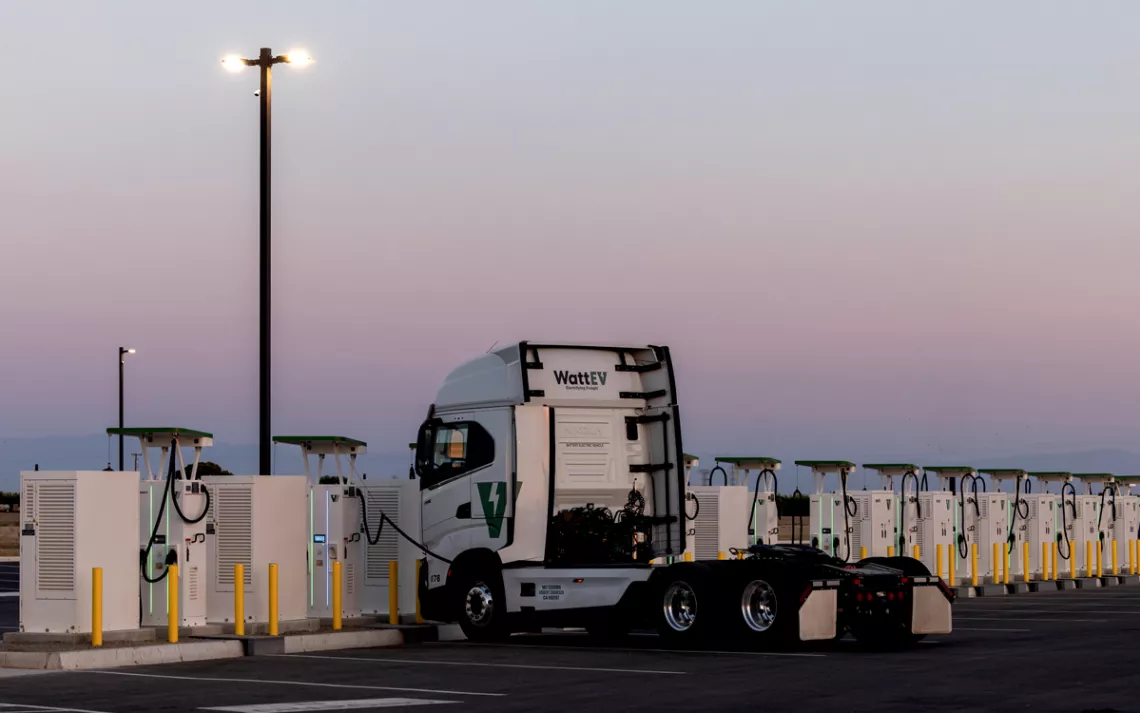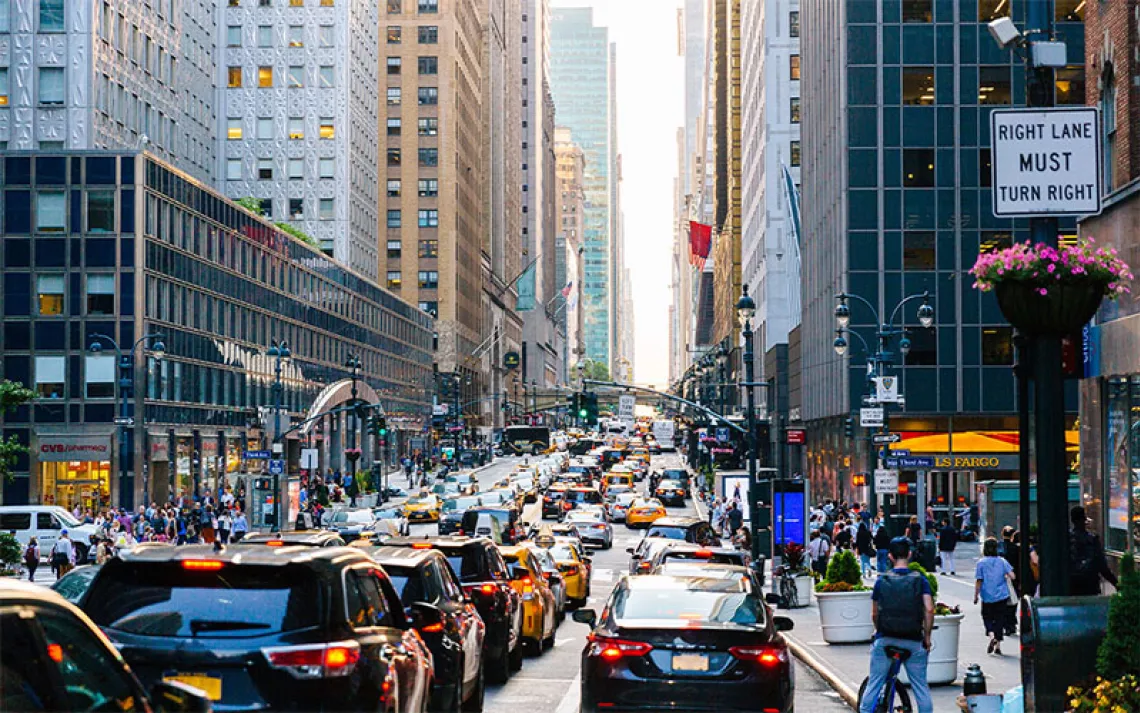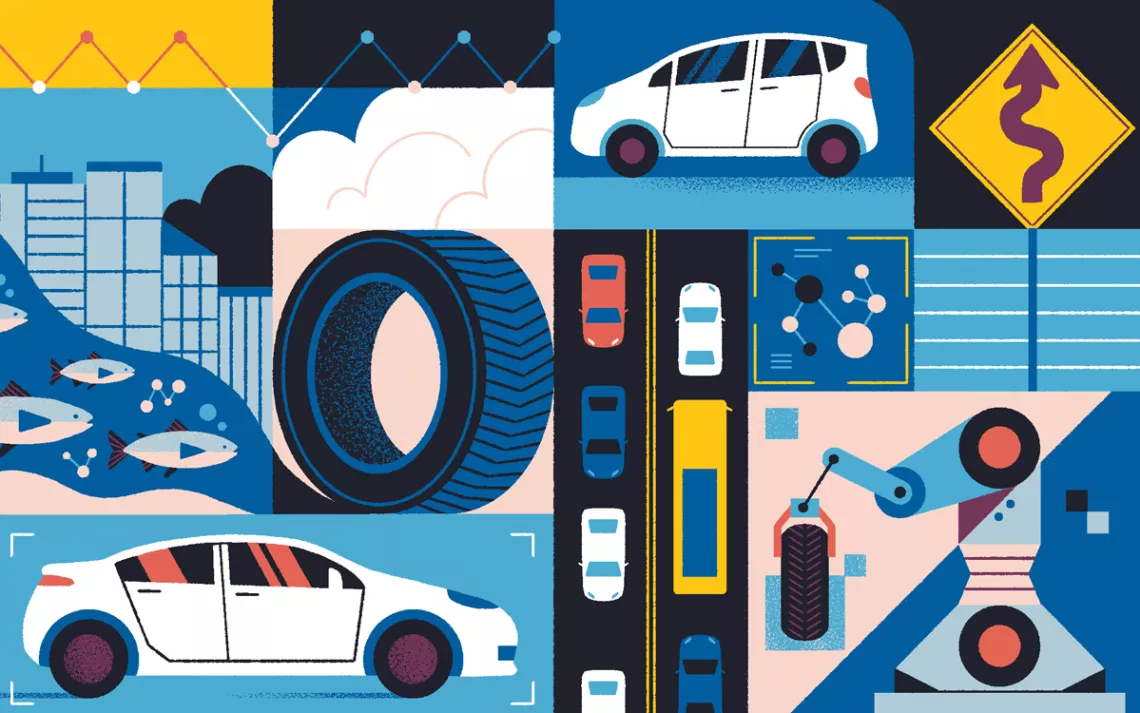Did California Trump the Clean Car Rollback?
An end run around the Feds could duck Trump’s attack on clean air

Photo by trekandshoot/iStock
Leverage is one of Donald Trump’s favorite themes—"don’t make deals without it,” he wrote in The Art of the Deal. In the two-year battle over clean car standards, California just reminded the Trump administration what real leverage looks like.
In late July, after months of secret negotiations, the agency responsible for writing the Golden State’s air pollution regulations, the California Air Resources Board (CARB), announced a surprise deal with four major automakers. Though the exact details of the agreement are not yet public, the parties agreed to implement fuel efficiency and greenhouse gas emission standards that are tougher than those proposed by the Environmental Protection Agency and the National Highway Traffic and Safety Administration (NHTSA), according to a term sheet CARB released. The deal amounts to an end run around federal agencies that would effectively blunt the impact of the Trump administration’s long-anticipated rollback of the Obama-era standards, which call for a fleetwide average of 54.5 miles per gallon by 2025.
The car companies—Ford Motor Group, BMW of North America, Honda Motor Company, and Volkswagen AG, which together represent about one-third of US car sales—agreed to a 3.7 percent reduction in greenhouse gas emissions per year through 2026. That amounts to a fleet average of nearly 50 miles per gallon by 2026. These targets are slightly less stringent than those currently on the books but represent considerably higher fuel efficiency and emissions standards than the Trump administration is expected to finalize by September.
According to John DeCicco of the University of Michigan Energy Institute, the deal “underscores how important regulatory certainty is to the industry.” Despite “regulatory pressures that wax and wane politically,” DeCicco said, “automakers realize that pressure to cut greenhouse gas emissions and shift to [electric vehicles] will only grow stronger over time. They’d rather have a deal with California that will likely remain in place should federal leadership change than get an extreme short-run rollback of the standards only to get hit with more stringent federal standards in a few years.”
Significantly, the automakers also explicitly “recognize California's authority” under the Clean Air Act to set its own vehicle emissions standards. DeCicco told Sierra that this was a “forceful rebuff of a key policy stance” of this administration, which has threatened to revoke California’s special waiver that allows the state to establish more stringent standards than the federal government's.
California’s leverage in its clean car battle with the Trump administration starts with an arcane provision in the Clean Air Act of 1970. Because of the state’s uniquely terrible air quality, Congress allowed California to write its own standards for tailpipe emissions. Through the law, the state could apply for a waiver from the EPA when it wished to enact more stringent rules than the agency's; then, if the rules were “at least as protective of public health and welfare” as the EPA’s, the administrator would be compelled to grant the waiver. Though California alone could request such a waiver, other states are allowed to adopt California’s standards. Currently, 13 other states and the District of Columbia have adopted the stricter California standards.
For more than three decades, the EPA has granted every one of California’s waiver requests—the first and only denial coming in 2007 over the right to regulate greenhouse gas emissions from vehicles. That denial was short lived—the Obama administration granted the waiver anew as part of the grand bargain that EPA and NHTSA negotiated with automakers and California. A Clean Air Act waiver granted to the Golden State has never been revoked.
Notably, the EPA air chief at the time of the first denial was Bill Wehrum, a corporate Clean Air Act attorney who returned in the Trump administration to hold this same position and served as the agency’s lead on the clean cars rollback. Wehrum abrubtly announced his resignation last month amidst a probe over ethics violations related to his former lobbying clients and whether those clients stood to benefit from his efforts to weaken air pollution standards. That investigation is ongoing.
Before and after his first stint at EPA, Wehrum worked as a corporate attorney representing a number of coal, oil, gas, and chemical companies as well as industry trade groups like the American Petroleum Institute (API), the American Fuel & Petrochemical Manufacturers (AFPM), and the Utility Air Regulatory Group (UARG). During Wehrum’s time in Bush’s EPA air office, courts repeatedly found the agency to be acting in violation of the Clean Air Act. According to NRDC’s John Walke, “the EPA’s air program lost an astonishing number of Clean Air Act cases during Wehrum’s tenure.”
The agency’s own data, cited by Walke, shows that “public health and environmental groups prevailed in court against Bush EPA air pollution rules 27 times in those seven years.” In other words, Wehrum oversaw or helped develop rules that were found unlawful 27 times.
Car companies have been largely diplomatic on the issue of the California waiver, pleading consistently for one national standard but not calling publicly for the EPA to strip the state of its regulatory authority. However, a coaltion of conservative groups, many with financial ties to Koch Industries and other oil companies, has been more outspoken, even sending a letter to then–EPA administrator Scott Pruitt calling for "the revocation of California’s waiver from the Clean Air Act, which allows the state to decouple from federal policy and impose strict emission standards on automobiles.”
According to Joanne Spalding, chief climate counsel for the Sierra Club, it remains unclear how exactly the current EPA will attempt to legally justify revoking the greenhouse gas emissions waiver. “Withdrawing the California waiver is unprecedented,” Spalding told Sierra, emphasizing that the move would immediately prompt lawsuits from California and green groups like the Sierra Club, who see it as clearly illegal.
For now, the national standards enacted by the Obama administration are still in effect. Spalding emphasizes that the Trump administration’s proposed rollback won’t survive legal challenges. “This California agreement is a backstop,” Spalding said. “It’s a way to ensure year-over-year progress toward emissions reductions and increasing stringency in the event that the rollback is finalized and then tied up in the courts.”
Opponents of the rollback are already accumulating plenty of ammunition for the legal fight. The Trump administration’s claims that the proposed rule will save American drivers money and that they will result in fewer traffic fatalities are “complete nonsense,” according to Andrew Linhardt of the Sierra Club’s Clean Transportation for All team. “The Obama administration conducted a really thorough 1,200-page technical assessment report,” said Linhardt, contrasting it to the lighter-weight analysis presented by the current agencies. “Compliance costs have come down to under $1,000 per vehicle, which is more than offset by the amount of fuel savings for drivers, even with current cheap gas prices.”
A newly published analysis by Energy Innovation projected the actual costs to drivers of the proposed rollback and found a cumulative impact of $400 billion in lost fuel savings by 2050. Linhardt added that “nothing in the record shows that vehicles would be safer without the Obama standards.”
DeCicco of the University of Michigan’s Energy Institute agreed. “The administration is recycling old, and long-since scientifically disproven, arguments and studies done over the years. The analyses claiming safety risks from higher CAFE standards have been rebutted by a number of studies since.”
“This is not an administration that believes in science,” added Linhardt.
 The Magazine of The Sierra Club
The Magazine of The Sierra Club



